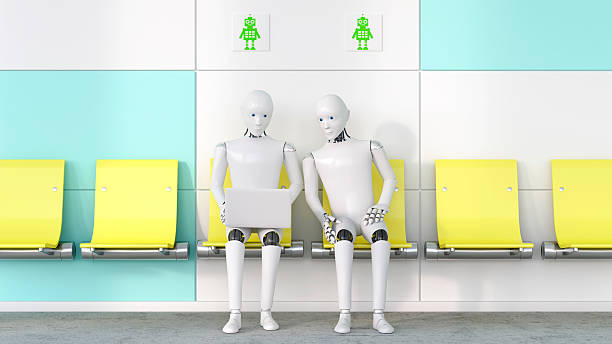How Artificial Intelligence Transforming E-Learning?

As another innovation, it’s unmistakable the full capacities of AI presently can’t seem to rise. It’s likewise certain that, as they improve and turn out to be progressively available, it will have numerous applications for online training. Here are only a couple.
1. AI will enable instructors to make new, vivid conditions for situation based learning.
At the present time, one of the greatest difficulties to utilizing spreading situations in e-learning is that the number and multifaceted nature of alternatives increments exponentially the further the situation advances. While these situations are colossally useful to learners, they can be troublesome for teachers to compose.
Be that as it may, AI could aid teachers by creating dynamic reactions inside a situation. Rather than following a pre-arranged content, it could consider more factors, making an increasingly sensible condition. For example, the conditions in the situation could change if a student takes too long to even consider responding, or if a certain situation way circles back to a past decision, it could recollect those answers and cause them to change future alternatives.
2. Learners will get customized mentoring sessions.
Online learning has given educators a major preferred standpoint, in that it’s enabled them to make exercises that can be shared a huge number of times in massive online courses. This saves time that the teacher can dedicate to making all the more course material, showcasing their program, or connecting with learners.
Be that as it may, while the capacity to consequently convey substance to countless on the double has evident advantages for maintaining an online business, it can abandon learners. There are cutoff points to the measure of individual consideration a teacher can give to any understudy, and the bigger that course turns into, the quicker that limit is met.
Artificial Intelligence won’t most likely supplant the move of a guide at any point in the near future, yet it can ease the burden. All things considered, if an AI can spot early cautioning indications of a sickness, perhaps it can likewise detect a student going to fall behind in their exercises, and recognize the best method to help them. Or then again, since we’re now planning propelled talk bots to deal with client bolster calls why not structure them to help with language coaching?
3. Automations will turn out to be progressively clever.
We’re continually searching for better approaches to mechanize basic undertakings. Monotonous obligations, for example, sending email updates or reviewing various decision tests are as of now taken care of pretty altogether through pre-modified work processes and set test answers. In any case, a few automations are excessively perplexing and contain an excessive number of factors and conditions for the greater part of us to program dependably, and we haven’t yet built up an AI equipped for reviewing a research paper.
Be that as it may, abnormal as it might appear, the day may before long come when AIs can audit short or long answers on a test and contrast it with publicly supported data gathered from the Internet to test for exactness. This would enable educators to make progressively strong tests, without getting to be overpowered by evaluating work.
4. More focused on and less nosy advertising.
It might appear to be incomprehensible to recommend that an increasingly astute AI could convey better focused on promoting and showcasing materials without the need of much close to home information from the client, yet it’s valid. Numerous organizations, concentrated on huge information, assemble more data than they recognize how to manage. Since they can’t get a handle on this mammoth heap of unsorted information, they’re bound to return to the mean and send informing that interests to the most minimized shared factor among their group of onlookers.
A superior AI could recognize which information focuses were important, and afterward quit gathering pointless information. That may sound unsettling at first, however it’s really a move the correct way. Possibly it needn’t bother with access to my Facebook account (alongside my whole companion list, and their companion list, etc) to realize that I would be keen on an online language course. Also, perhaps if organizations figured out how to focus on their promoting effectively, YouTube would quit indicating me notices for rheumatoid joint inflammation medicine.
Artificial intelligence still has far to go—however it is en route.
Current AI innovations, while noteworthy, are still for the most part restricted by application. We can instruct an AI to achieve explicit assignments superior to people, yet we haven’t trained a solitary AI to do every one of the errands people can show improvement over we can do them. Dark Blue could overcome Kasparov at chess, however it couldn’t talk with him in Russian. AlphaGo may motivate some fascinating logic papers on the idea of intelligence, however it can’t itself think of them.
In any case, the enhancements in neural net AI that helped split Go are pushing limits in a wide range of enterprises—training among them. As much as these situations may appear to have a place with the domain of sci-fi, it’s presumable a large number of them will be ordinary inside the following 5– 10 years. Will you be prepared?










